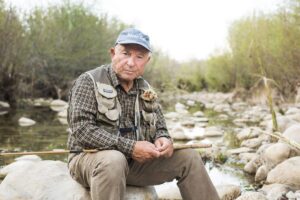Cotton. It is everywhere. Our bed sheets, our clothes, our underwear, our furniture. So what is the life cycle of only one t-shirt like?
The most common garment in the world. Between 1994 clothes production increased by 1400% worldwide, as fast fashion became a global trend and demand for cheap garments soared. Today over 1 billion t-shirts are sold each year.This came at a great environmental and social cost. To produce one t-shirt about 2700 litres of water are needed, which equals to 30 full bath tubs. Cotton uses more pesticides and insecticides than any other crop in the world, pollutants that are carcinogenic. That’s not all, the need for cheap clothing worldwide has made clothing production responsible for 10% of carbon emissions as the main producers are India, Bangladesh and China.Yet, there is a solution that alleviates the environmental stress cotton poses: organic cotton. However, today organic cotton accounts for less than 1% of the 22.7 million metric tons of cotton produced each year.
Where do we go from here?

Organic Basics
Organic Cotton Certificates
Invest in brands with a similar ethos to yours. For example:
Organic Basics: The name says it all. Straight to the point: buy your essentials from a company that shares your values. Organic Basics started in 2014 with a clear mission, provide easy, comfortable and sustainable garments. With an about page as candid as: “The fashion industry is a dirty bastard. So we put sustainable thinking at the center of everything- that means we only choose fabrics that care for our environment and we only ever partner with factories that care about their impact, too.”We bow to the beautiful mission organic basics adds to our closets.
How do I determine whether a brand uses organic cotton?

Thankfully there are certificates and standards in place. GOTS and OCS are the two international certifications that will certify what a brand is claiming. GOTS (Global Organic Textile Standard) checks every step of the supply chain, from harvesting through production, and even labelling. Considering both environmental management and social responsibility of producers GOTS is the gold standard for sustainable processing of textiles.Whereas OCS (Organic Content Standard Certification) verifies that a product has met organic standards throughout its journey, from raw up to its finished product. It only covers the traceability of the organic raw material, without acknowledging the production process.When purchasing organic cotton garments look out for a GOTS logo, it will have the most comprehensive standards













